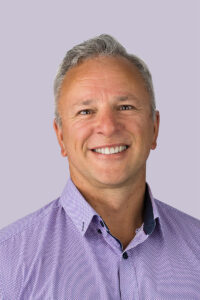If time away from work this summer has you thinking about a career or job change, you wouldn’t be the only one. The long summer break, with its ample time for reflection, often leads to change. Brenda Newth looks at some of the job change ‘theory’ and talks with some Hawke’s Bay ‘change’ experts.
A recent survey of New Zealand workers conducted by Employment Hero indicated that as many as 39% of Kiwi workers plan to change roles, and a quarter were planning to change career entirely.
Three years on from the start of the global pandemic, Covid-19 has had a significant impact on work and more specifically how people feel about work. The ‘great resignation’, ‘quiet quitting’ are now part of the vernacular. And for many workers the search for meaning has led them to reconsider their career and redefine what is work.
Joanne Lipman, in Time magazine, writes that the “true significance of the great resignation is not what we are leaving, but what we are going towards.” She says the surprising phenomenon is not that people are abandoning jobs, but switching professions, and it’s occurring at every income level not just the high earners.
Global consultancy PWC’s Asia Pacific Workforce Hopes and Fears Survey 2022 says in the wake of Covid-19 workers across the region are rethinking their lives and work is topping the list. Employees say they want more meaningful work, a better deal around fair pay and to be able to bring their authentic selves to work. More than 40 percent of the 18,000 surveyed are unsatisfied with their job, which should be of deep concern to employers.
Herminia Ibarra, a career change specialist, writing in the Harvard Business Review, offers simple principles for those considering career reinvention. She says that it makes sense to pursue a portfolio of options, rather than just one. Another expert in “encore careers” – those in the second half of life, is Marci Alboher. Her advice? To “cultivate your slashes”, where you gain several income streams from different types of jobs at the same time. Career change can be messy, so the more strings you have to your bow, the more potential career options you have.
In the context of the skills shortage there may never be a better time for Kiwis to change careers. The talent pool is shrinking. Businesses are crying out for staff at every level. Employers are facing increasing competition, leading to wage inflation, and are now having to consider candidates that don’t tick all the boxes but might have transferable skills. That’s something that career switchers can use to their advantage.
One trend gaining prominence in recent years is micro-credentialling (short-term learning experiences). A recent Forbes article suggested that micro-credentials are huge for the future of work – from an employer perspective. But they can work just as well for workers looking to develop skills in new areas, offering bite-sized qualifications in specific subject areas and an easy way for career changers to get a taste of a new area without massive outlays in time or money.
LinkedIn CEO Ryan Roslansky says that skills, not degrees, matter most in hiring. The LinkedIn platform currently offers more than 16,000 online courses taught by experts. More than seven million people have tuned into its top classes this year, more than double the year prior. The Covid lockdown spiked interest in e-learning and in 2022 interest remained high, with learners interested in both soft and technical skills.
US-based career coach Caroline Castrillon says the average age of career changers is 39 and encouragingly, “experience and transferable skills can open doors you’ve never dreamed of.” Her message: changing industry or careers doesn’t mean you’ll be back to square one because soft skills – leadership, teamwork, problem-solving – things learned over years in the workforce, are in huge demand and will help land the job you really want.
Castrillon says don’t let inertia keep you in a job you hate. In one of her YouTube videos she says: “Don’t settle for a career or job that sucks the life out of you. It is possible to find career fulfilment. It won’t be easy, but it is possible.”
Encouragingly, Castrillon cites a survey from Indeed showing that 88% of career changers were happier after making their move. If you’re contemplating a career change and aren’t sure if it’s the right time, check out her free guide: Five signs it’s time to make a bold career change: https://bit.ly/3Gsshen
Getting prepared
Changing jobs or careers can be stressful, but that stress is an important part of the process. Change management experts talk about the ‘liminal period’, the stage between what we’ve left, and what we’re moving towards. Sitting in that space can be uncomfortable and for that reason most people want to rush through it, but neurologically important things are happening.
Bill Bridges, an authority on change and transition who transformed the way people think about change says of this in-between state: “We need not feel defensive about this apparently unproductive time-out at turning points in our lives … In the apparently aimless activity of our time alone, we are doing important inner business.”

Perhaps the most important preparation for career change is the ‘top two inches’. Jonathan Black, chartered organizational psychologist from Havelock North, says that people contemplating a career change need to understand what they are looking for.
Black mainly works with senior managers, professionals across a variety of industry sectors considering a change. Some discussions reflect a change in circumstance and others reflect a mis-match to current role, or a serious loss of mojo.
“The first thing for people to clarify is what kind of change they want. They need to ask: Am I looking for a change in career or a change in role, employer, or the people or customers I interact with? Because when we look at the degree of difficulty, changing career is probably the hardest.
“The second question is: why do I want that change?”
Black says it’s important to go through an ‘appreciative enquiry’ process, a model that starts with what candidates’ value and appreciate, obtaining information and exploring both the status quo and genuine options that puts them in a better position to think about what they don’t want to lose, and also to recognise why they haven’t made changes … yet.
“It also means that when candidates make the choice to change, that they are making a conscious choice for something better, and that they are responding, planning and co-ordinating rather than reacting.”
Black, who often coaches people to interrogate their careers, says that while life events trigger career change, the realisation that work isn’t delivering what it used to can be a big factor.
“It might be that learning or advancement has stopped, or there’s a sense of inequity, or that values no longer align. One of the biggest reasons why people leave organisations is the way they’re treated by their peers and manager, and exploring what this means, its cause and impact, can be very important.”
He talks of the concept of alignment coming into prominence as people approach the second half of their careers, and the 20:20:20 principle. “The first 20 years of life we develop who we are. In the second, we deal with the consequences of who we are. And in the third 20 years we finally accept who we are and we’re ok with that, and are therefore more open about getting what we need from our career.”
Career change is a team sport he says, and it’s important to get support on the home front. “It’s not just happening to the individual. Most of us have a partner, maybe children, and other commitments that our decisions impact. So the conversations we have around this topic are really important. What will this (possible) change mean for the family? The mortgage? The lifestyle and goals that we may have?”
Black says that with change can come powerful discomfort. “If you’re not willing to be uncomfortable, you’re not going to grow. It takes courage to change and there’s two things we need to generate effective change.
“First is a compelling vision, and the second is sufficient urgency, pain or reason to change. Our tolerance levels are quite high. Often I come across individuals concerned about what others will think and that prevents them from changing.”
A bit of introspection and navel gazing is called for, says Black. “It’s good to ask: why am I looking for that? How much of the desire for change sits with me and my beliefs? How much of my restlessness is self-created, and has nothing to do with my job or employer? It is really important to take a step back and reflect,” Black concludes.
The executive coach
Haumoana’s Liz Read is a reputation specialist, and business and executive coach, who works with executives to help them transition from one role to another or to move into a more senior role.
“These executives need to position themselves for credibility and to build trust with the people in the organisation and with external stakeholders incredibly quickly.

“I’ve worked with one senior executive who has moved into a number of roles and is now chief executive of an organisation with 3,000 staff. As they have moved into new roles, they’ve needed to quickly establish their credibility and share their vision with people. They have been very focused on getting the best outcomes quickly from a team that is looking expectantly towards them and wondering: ‘What are they going to be like to work for?’
“In several of the transitions they’ve made into leadership positions, they have been seeking quite a significant change in the way that people do their work. So they used a combination of my coaching around how they establish their own leadership style and how they set expectations with people, alongside a culture and change expert, and that works really well for them.”
No stranger to career change herself, Read’s working life includes time as a parliamentary press secretary and senior communications roles across the public and private sectors before moving into consultancy, coaching and independent directorships. All of her career moves were deliberate, leaving certain aspects of roles behind, in favour of more desirable attributes that were a better fit for her skills and style. These days her work is meaningful, has variety, involves influence at the highest level within her clients’ businesses, and is fun.
To those seeking career change Read advises evaluating job opportunities across four dimensions: the organisation, its leadership, the job itself and the organisation’s values. “To be successful it has to work across all four. Be clear about what you want more of and what you want to leave behind, and don’t ignore the values piece!”
It’s vital to park the ego, says Read, especially if you have been approached or headhunted. She tells the story of one opportunity she was offered. “Everyone I spoke to said I’d be great for the organisation. In hindsight I got quite seduced by that and never once did I ask if that organisation would be right for me. I quickly realised it wasn’t.”
Read says career changers and job seekers should not shy away from doing due diligence. “Find out what the organisation is really like. Ask around and ask to speak to people who work there. Use the interview process to really interrogate, and don’t shy away from it. After all, the interview process is a two way street.”
We go to work to earn, learn and to have fun, says Read. “One role I had was with a manager that wasn’t a great fit for me. He was an extraordinary practitioner, so I learnt a lot from him. At the time I consciously traded fun for learning and that was ok because I was aware of what I was doing.”
She says that people are looking for meaning beyond their pay packet. “I think there has been a tremendous shift; work (in small letters) needs to fit into life (in capital letters) and that’s been a big change.”
Changing jobs or career can be a big deal, but the rewards are there for the taking. Finding a role that fits your skills, values and style where you can earn, learn and have fun, and be your true authentic self might sound like a big ask. Back yourself and go for it!


When citing surveys, would be good to know participants/methods, as sometimes difficult to put perspective on result if you don’t know the organisation or their objectives.